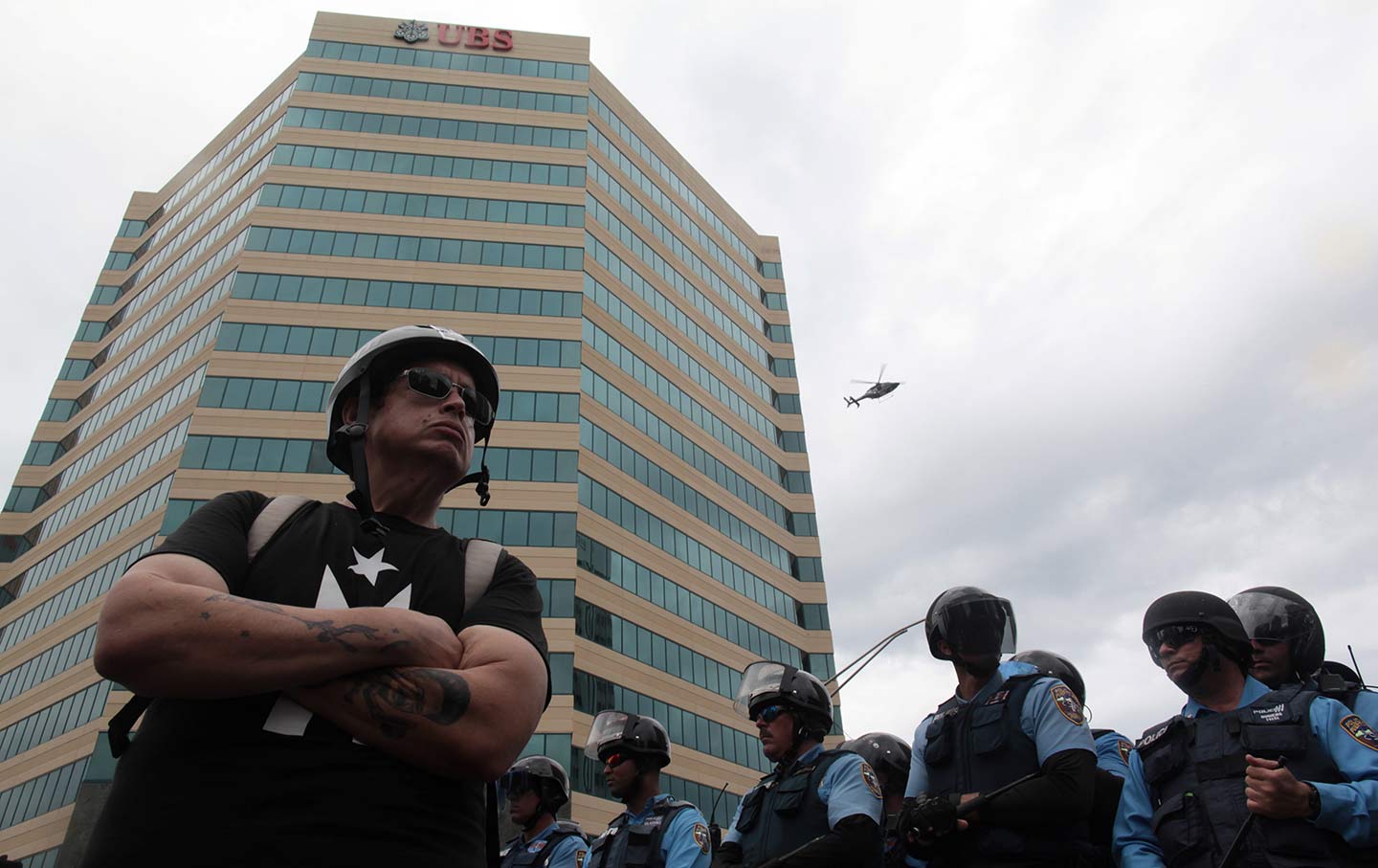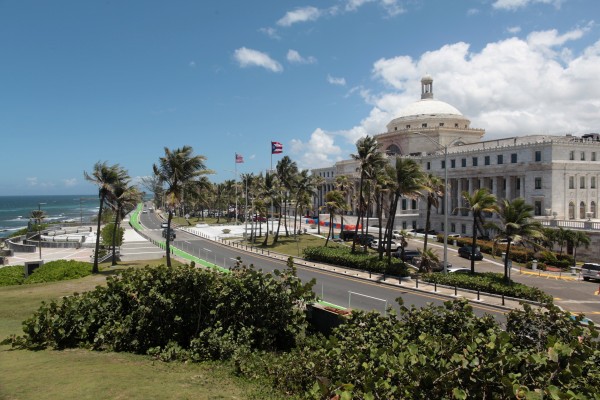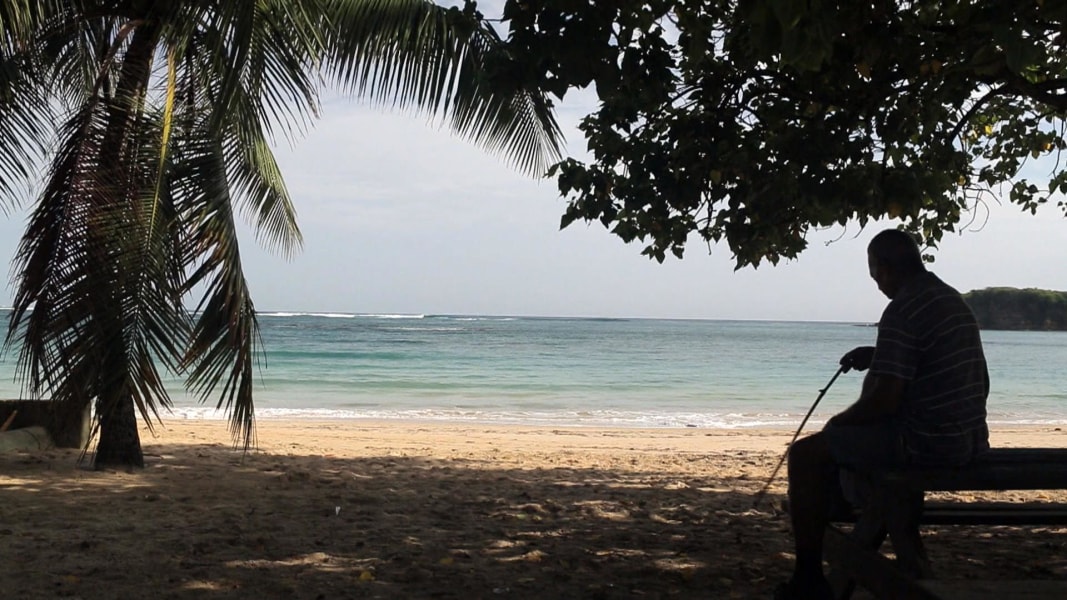Puerto Rico government officials, struggling with a mounting bankruptcy crisis across the island, see some optimism for their problems in President Donald Trump’s new Cuba policy.
Trump announced in Miami last week that he would roll back some of former President Barack Obama’s previous regulations, including a new policy directive that Americans traveling to Cuba for educational person-to-person education trips do so with groups joined by a company representative.
Puerto Rico officials say this shifted U.S. relationship with Cuba could in turn increase tourism in their nearby island and help save its suffering economy, which declared bankruptcy in May and is more than $70 billion in debt. And combined with U.S. statehood, the territory could make notable strides toward financial recovery and restoring the territory’s credibility.
“Our credibility in the markets, our credibility in Washington, and our credibility to the world,” Carlos Mercader, executive director of the Puerto Rico Federal Affairs Administration, told McClatchy on Tuesday at an investment summit near Washington. “And that has a lot to do with how we portray ourselves as a tourist destination.”
As of March 31, tourism made up 7 percent of Puerto Rico’s GDP, compared with a global average of 9.8 percent and a Caribbean average of 13.9 percent, according to the Puerto Rico Hotel and Tourism Association. But less tourism in Cuba could mean more for the territory, giving the industry a much-needed boost, Mercader said.
“Competition is good. Whenever you have competition, you have the opportunity to stand out,” Mercader said. “Cuba doesn’t have the infrastructure that Puerto Rico has. Cuba doesn’t give you the certainty that you are on U.S. soil. You don’t even have to use a passport (in Puerto Rico). … People can go there anytime, without any concern (or) any worry. So in that sense, I like competition.”
But Trump’s new Cuba policy isn’t the only reason why Puerto Rico officials say they’re trying to be optimistic about the territory’s financial future. They’re also looking for more investment in the island. And this week, they traveled to the annual SelectUSA Investment Summit in Oxon Hill, Maryland, outside Washington to network with other companies and promote foreign direct investment in some of the territory’s economic initiatives.
Credibility within the tourism industry could stem from a recent measure signed by Puerto Rico Gov. Ricardo Rosselló to create a Destination Marketing Organization, a group charged with encouraging development of a destination through tourism and other travel. The DMO, previously run by the government, will shift to the private sector, as “the government has been incapable of providing stability and consistency to the sales and marketing efforts of the destination,” according to a U.S. Senate Finance Committee report from October 2016.
“This creates a long-term plan that will not be affected by the political changes that Puerto Rico might face, with much more consistency and much more strategic and data-driven,” Mercader said.
U.S. statehood could also give the island stability in the business sector by attracting foreign investors, said Julio Benítez, deputy director of the Puerto Rico Industrial Development Company, a government-owned business aimed at attracting investment and economic development.
“Puerto Rico is in a spot right now where we need, more than any other time, the economic development to overcome the shortage crisis that we’re suffering,” Benítez said. “Everybody wants to do business on U.S. soil. It would be perfect to be the next state in the United States.”
Specifically, the island is exploring investment opportunities in manufacturing and infrastructure. The Puerto Rico Public-Private Partnerships Authority — a government entity that implements public policy on partnerships between government and non-government groups — has initiatives in areas such as highways and international airports, and it is working on developing several others, said Ernesto Rivera, deputy director of the authority, also known as P3.
“Our main attention at this moment is to get the market’s attention and get the credibility back in Puerto Rico based on our strong legislation, our strong legal framework and the transparency of the process,” Rivera said.
And this status isn’t doing the economy any favors, said Puerto Rico Public Affairs Secretary Ramón Rosario.
“At the moment, Puerto Rico receives a discriminatory treatment in federal programs that incentivize the economy,” he said. “Statehood provides a powerful investment framework that has proven effective in 50 states.”
While Rivera is optimistic about the territory’s investment opportunities, these initiatives could be more feasible as a state, as this status would tell investors that the U.S. government, a major player in the global economy, “is interested in making that state succeed,” Mercader said.
“(Investors) are going to say, that’s a place where we can go, and there’s no doubt that our money’s going to be safe there,” he said. “At the end of the day, this is a win-win situation. For the United States and for us.”
Jessica Campisi: @jessiecampisi
Many interests are upset at Trump’s new Cuba policy. Puerto Rico isn’t one of them




